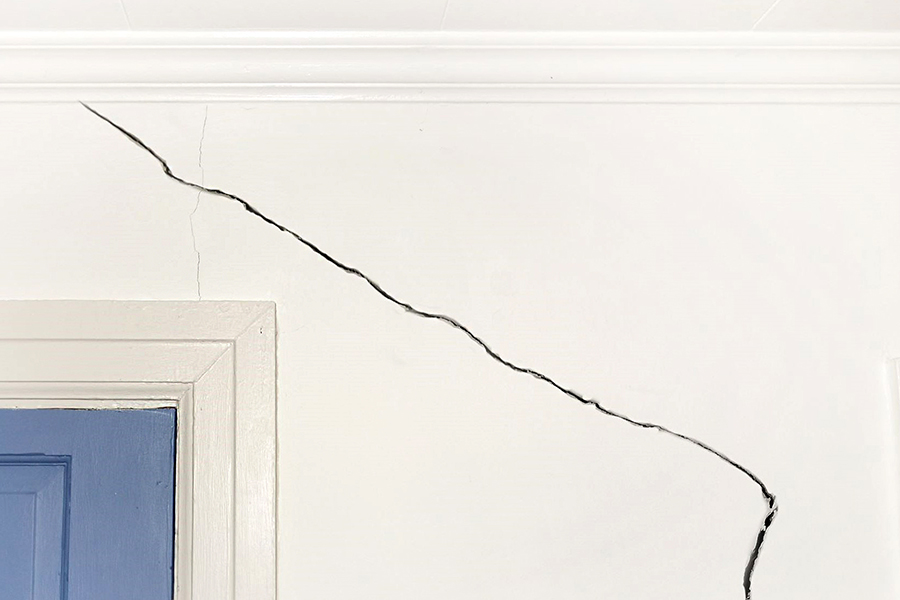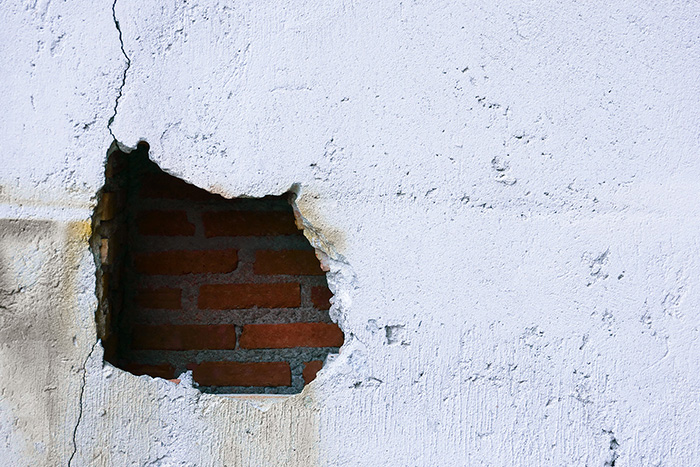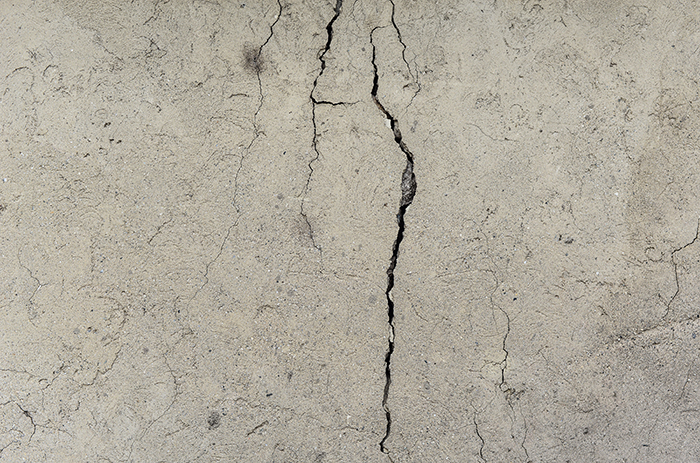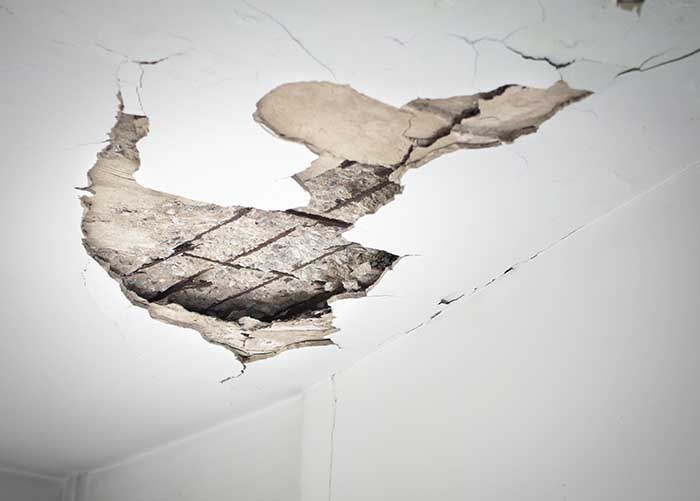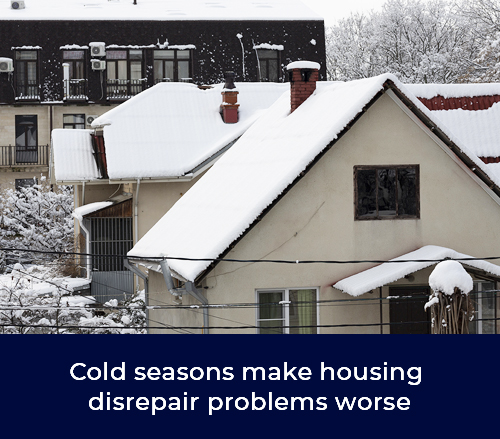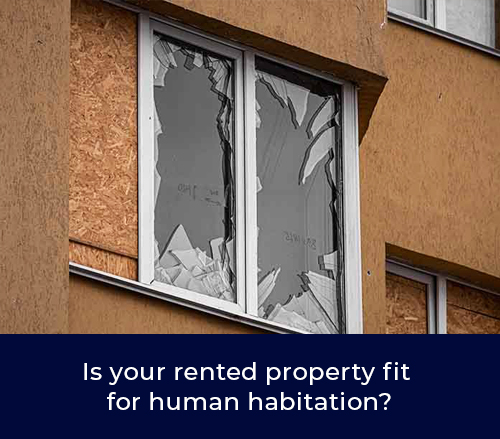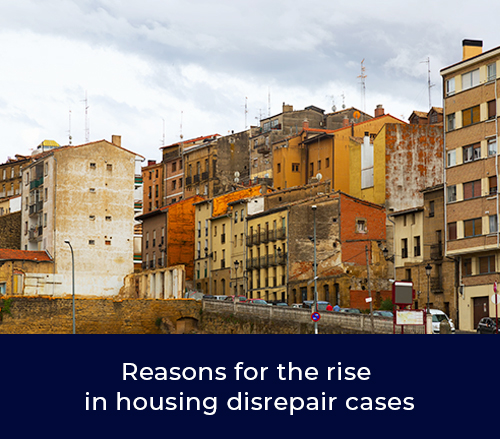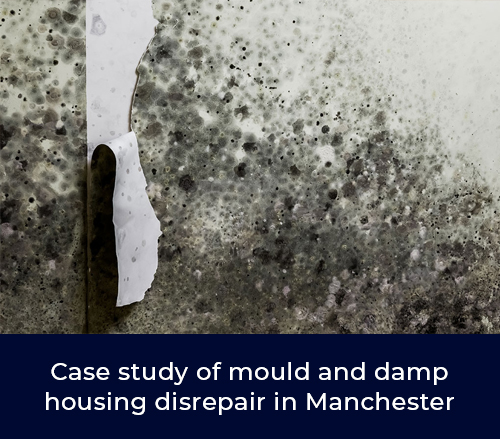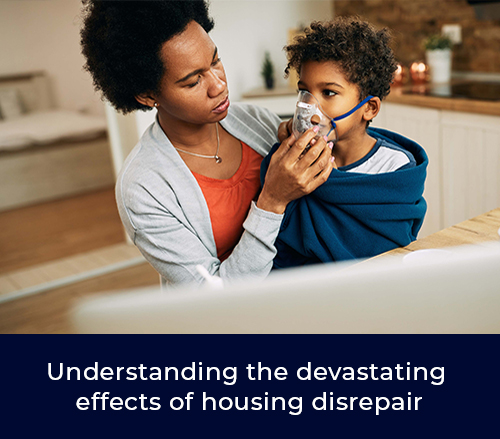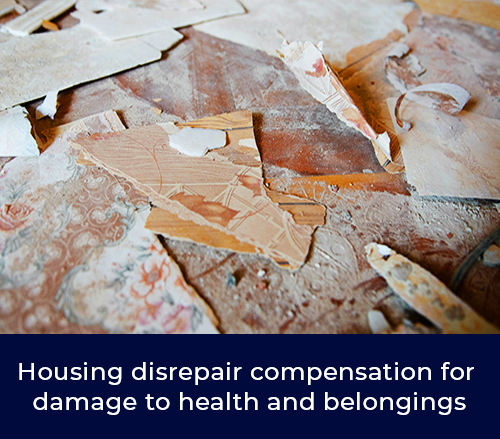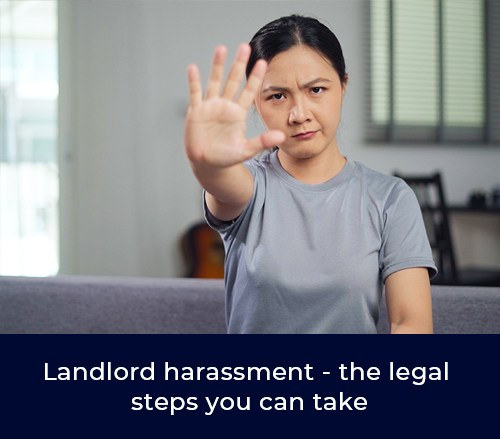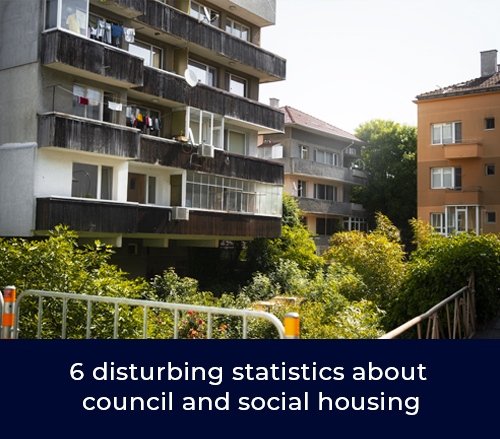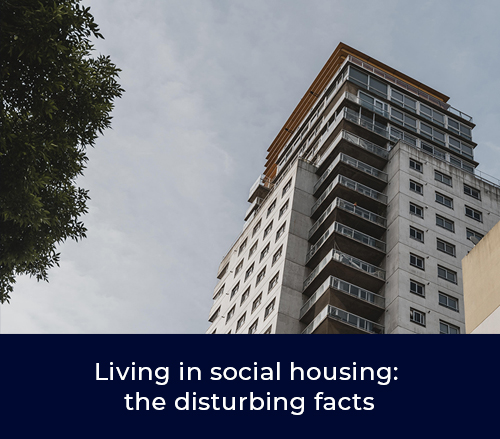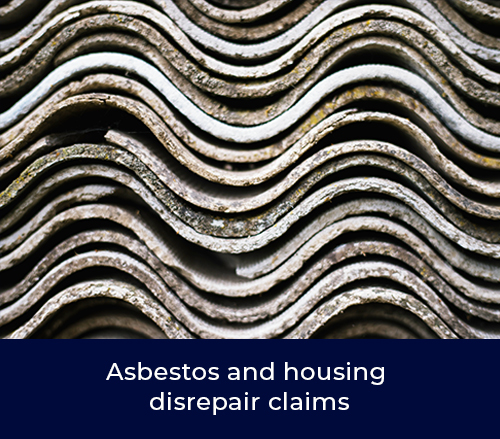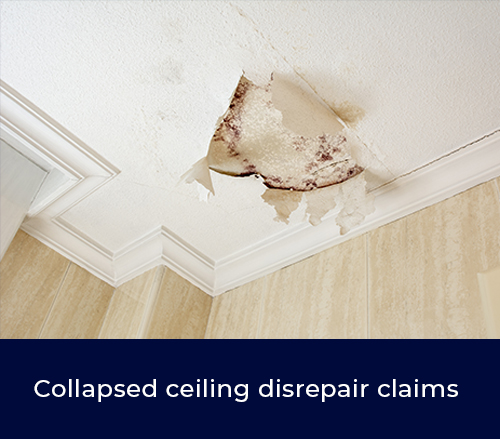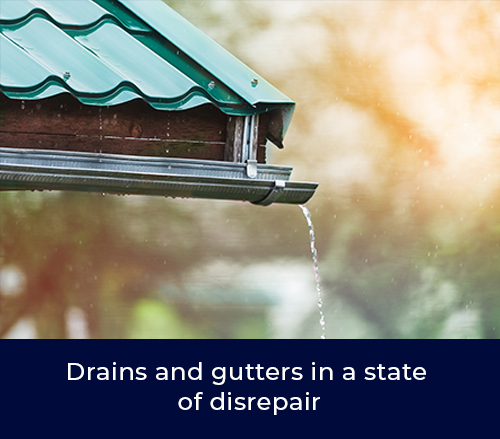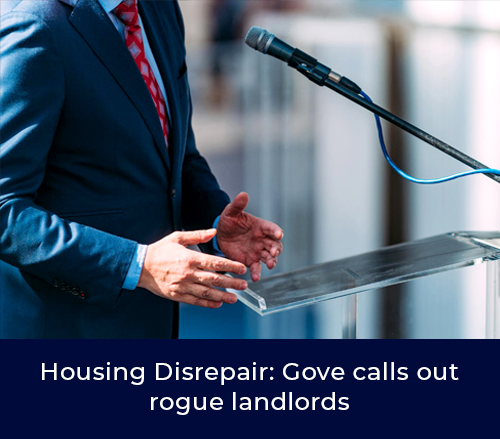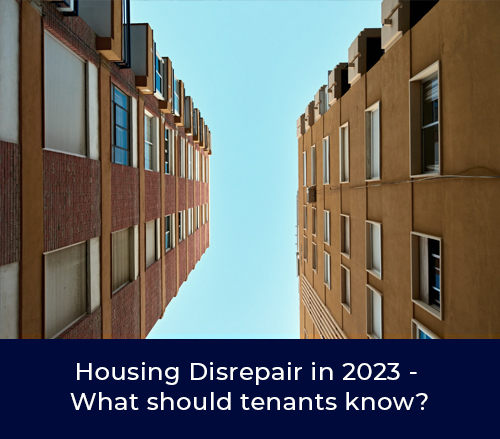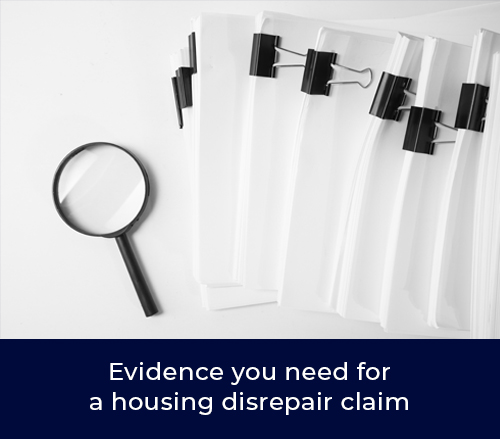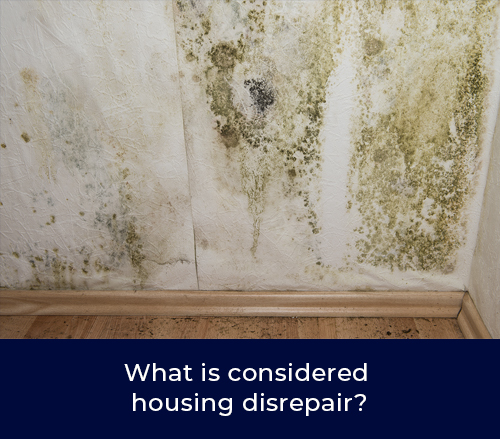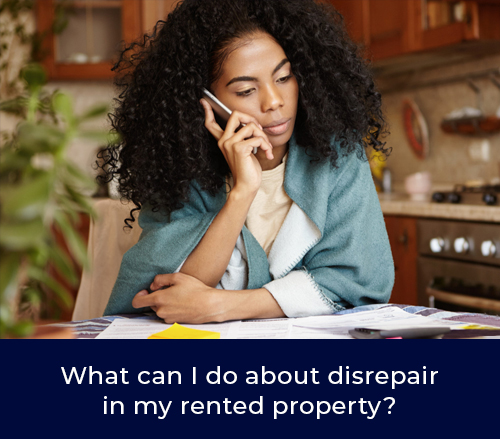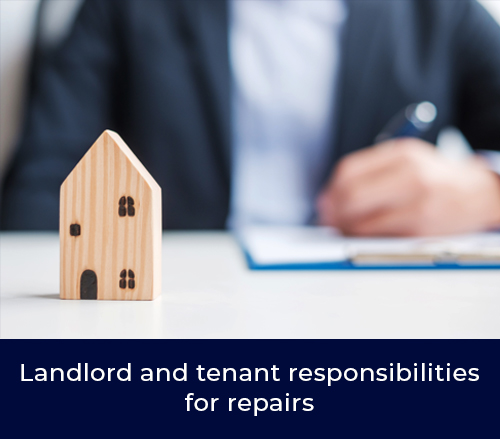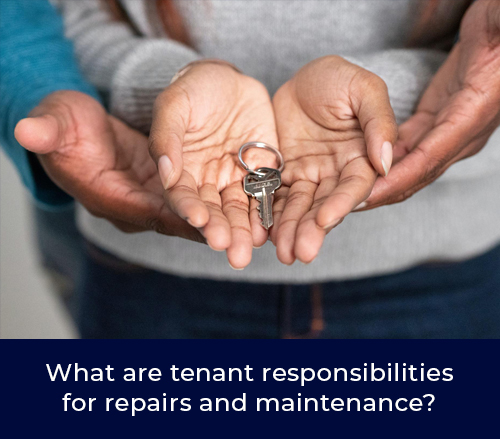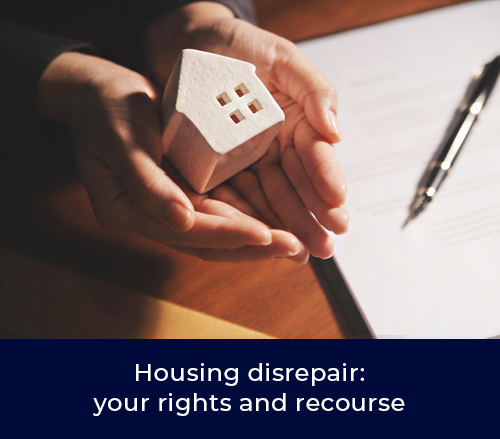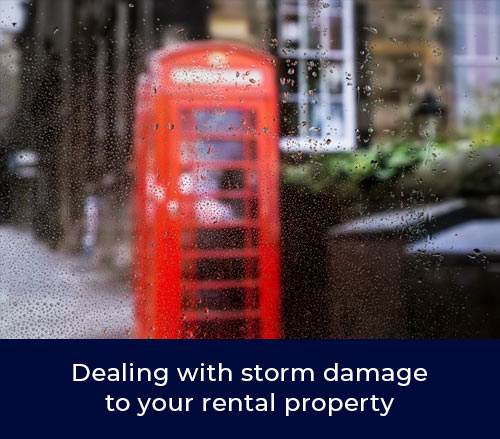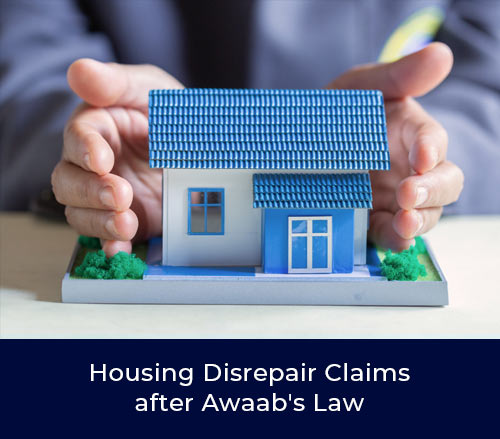Structural issues housing disrepair claim
If you are a council or housing association tenant living in a building which has structural issues, you must immediately inform your landlord. If the landlord makes no effort to repair the issue, then you may lodge a claim for compensation upon the grounds that your home is not fit for human habitation. Contact us today for a free initial assessment. Our friendly and professional team of housing disrepair solicitor will use their expertise to get you the maximum compensation along with the justice you deserve. We work on a No Win No Fee basis you won’t pay a penny unless we win your case. Furthermore, our success fee is both ethical and competitive, ask us about details.
This page contains all you need to know about hiring a housing disrepair solicitor to represent you when your rented accommodation has structural issues.
The housing disrepair claim check list
Can you answer yes to the following questions? If so, please get in touch so that we can discuss your case further:
Are you renting your home from the council or a housing association?
Are your rent payments up to date?
Is your landlord responsible for the disrepair?
Has the disrepair been reported to your landlord?
Has your landlord failed to repair the issue within a reasonable amount of time?
Process your disrepair claim in 3 easy steps with us

1. Get in Touch
Are you a council or housing association tenant? Contact us and tell us about your matter. We work on a 100% No Win No Fee basis, so you won’t pay a penny unless we win. Give as much information as you can. The more information you can provide, the better chance of successfully resolving your case. The initial assessment is always free and with no obligation. Call 020 8578 7778.

2. Build Your Case
Let our experts do all the legal work for you. We will explain what documents you need to provide so that we can process your application. Once received, our disrepair lawyers will complete and submit the necessary documents to counterparties and courts.

3. Success
Remove the stress by having our disrepair lawyer by your side. Let us do the hard work. We will keep you updated every step of the way resulting in a successful outcome.
Get in touch with housing disrepair solicitors
We make it easy for you to speak with our disrepair experts
Use the online chat on our website
Call us on 020 8578 7778
E-mail us contact@silveroaksolicitors.com
Visit us at our office. We are open Monday-Friday 9am - 5.30pm
When you first contact us, we will ask for some initial details. You can be assured that everything you discuss with us will be completely confidential, and any information stored by us will be in accordance with UK data protection regulations.
At SilverOak Solicitors, we provide our clients with regular updates using a range of secure platforms such as video calls, voice calls, and secure messaging, all for your convenience!
Read recent client reviews
Why choose SilverOak Solicitors?
No Win No Fee
We work on a No Win No Fee basis for personal injury and housing disrepair claims. We only take on cases we are confident we can win. If we lose, you don’t pay our fees.
Highly Experienced
Our highly experienced solicitors and consultants have secured millions of pounds in compensation.
Excellent Client Care
You’ll have a dedicated file handler and senior solicitor working on your case so you won’t need to speak to lots of different people.
SRA Regulated Law Firm
We are a trustworthy SRA regulated law firm and member of The Law Society.
What is a structural issue disrepair?
Structural issues cover damage to building materials within the house which affect the integrity of the structure. Structural faults to the property could exist from the outset due to poor build quality. They could also appear over time. There are different types of structural damage and different causes which make it worse. For example, flood water can erode a home’s foundations if it occurs often enough.
What types of structural issues are there?
Examples of structural issues to your rented home might include:
- A leaking roof, or a roof which is damaged
- Foundation cracks
- Rot in the beams of the house or in the woodwork
- Damage to load bearing walls
- Damage to exterior walls
- Problems with the flooring
- Framework damage
Structural damage has a range of causes. It is possible that the ground underneath the house shifting is causing an issue. Subsidence, fracking, ground heave, and even other building works nearby, can all cause damage over time.
Who is eligible to claim for structural issues?
When you rent a property to live in, you become the tenant. A tenant has rights regarding the property and should not live in any accommodation that falls below a certain standard of living. You may be eligible to claim compensation if your landlord fails to act, but you must be able to prove that you informed your landlord of the repair work, and that the landlord either refused to repair it, or did not repair it in a timely manner.
If the landlord is refusing to act, you can then file a claim against them. The court can force your landlord to make the repairs. A housing disrepair solicitor can take things one step further on your behalf and seek the maximum amount of compensation for the inconvenience caused.
What are your rights as a tenant?
The rights of a tenant were originally set out by the UK government back in 1985. Additional information was added in 2018. The 1985 Landlord and Tenant Act says that a tenant has the right to repairs, a stable house, freedom from damp, natural lighting, ventilation, water supply, drainage and sanitation, and facilities for cooking and eating food.
The 2018 Fitness for Human Habitation act goes into greater detail over what a landlord must fix and how long they have to do it in. This act also lists things like ventilation and natural light. They also list structural issues as potentially problematic.
The structural issues in the 2018 act include:
- Neglected buildings
- Unstable buildings
- Unsafe layouts
- Asbestos containing materials
- Structural collapse and falling elements
If your building has any of these structural issues, it is time to hold your landlord accountable. Seek the advice of a housing disrepair solicitor for advice on how to proceed.
Tenant responsibilities when dealing with structural issues
If you find a structural issue on your property, you must report it to your landlord immediately. Do not wait for the problem to become worse, or for something to hurt you before you report it. If the landlord has a valid case that you allowed the problem to deteriorate, this can cut short your claim for compensation.
Report the problem in writing and wait for a response. If your landlord refuses to conduct the repair, expects you to do it instead, or threatens to withhold your security deposit to cover the costs, they are breaking the law. Seek a housing disrepair solicitor before you proceed.
You should never conduct a repair unless it is specified in your lease agreement that these repairs are your responsibility. A landlord cannot ask you to pay for structural repair issues, even if they try to place this in the lease agreement.
Landlord responsibilities
Your landlord must conduct the repair work after they are informed of the structural issue with the building. You need to give them suitable time to do this. If you have not had a response from them, or if they do not make the repair arrangements within 28 days, you may have a suitable case for housing disrepair. According to UK legislation, your landlord cannot charge you for the repair.
Why a housing disrepair solicitor is essential
If you want your claim to be smooth, fast and successful, you should hire a housing disrepair solicitor because they have the skills and experience to get you where you want to go. Ideally, they can approach the court to request an injunction, which forces your landlord into the repair work. They can also pursue the maximum amount of compensation on your behalf. Without their help, you stand to make much less. Your landlord will hire legal representation even if you do not and your case could be overturned altogether.
How to apply for a housing disrepair solicitor?
Applying for a housing disrepair solicitor in the UK is easy. Call our office and speak with an advisor. Our expert housing disrepair solicitors can talk you through your options with you. They can instruct you on evidence gathering, represent you in settlement negotiations, and file your claim on your behalf.
Making a housing disrepair structural issue claim
Has your landlord failed to make repairs to your home?
Our highly experienced housing disrepair solicitors will fight for your repairs and compensation on a NO WIN NO FEE basis. Contact us for a free consultation.
If your rented home falls below a reasonable living standard because it has damp, mould or other issues, you could make a claim for compensation. You must have reported the issues and given your landlord a reasonable amount of time to repair the issues. If they have not you can make a claim for damage, personal injury, financial loss and/or nuisance.
Your landlord is responsible for the above repairs irrespective of what your tenancy agreement says. Your landlord may be responsible for additional repairs stated in your tenancy agreement.
Claims can be made either during your tenancy or after your tenancy, as long as you are making the claim within 6 years of the date that you informed your landlord of the disrepair. Personal injury claims related to housing disrepair must be made within 3 years of the date that you informed your landlord.
Your landlord may not be responsible for repairs if they are a result of you either not taking care of the property properly or doing something unreasonable.



